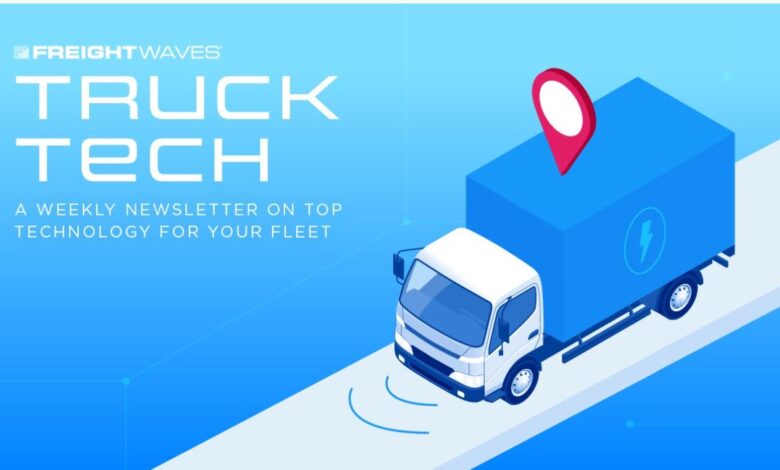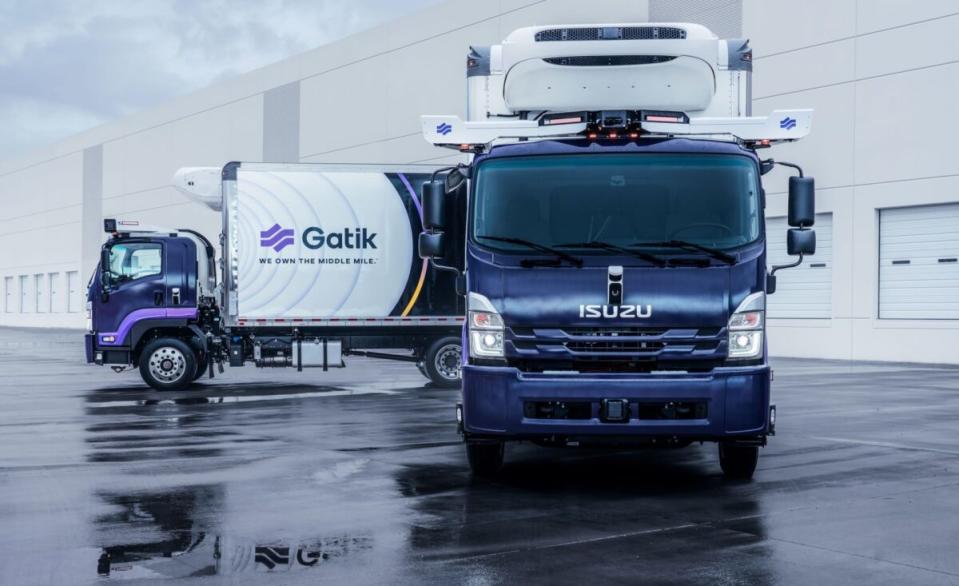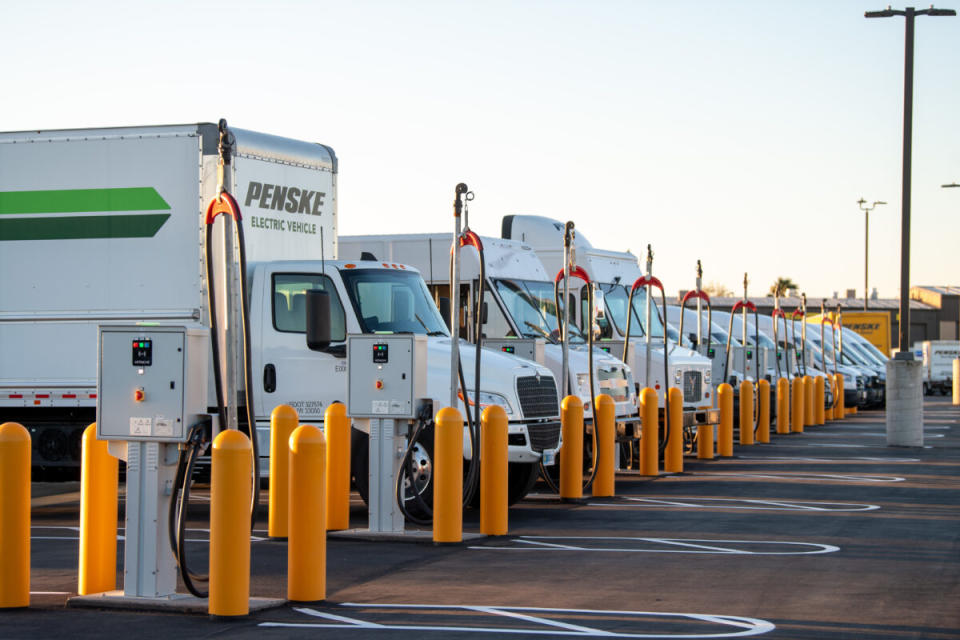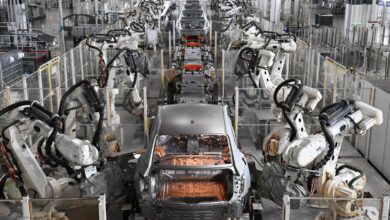Opposition grows to speedy electric truck transition

product development. (Photo: Ryder)
Ryder used its dedicated operations as the context for the study. Dedicated operations serve customers who depend on Ryder to provide trucks, drivers, routing and network planning. The company added up the cost of maintenance, fuel, charging time, the EV charger, driver wages and benefits, as well as range and payload.
“[It’s] a great laboratory that we have in our own backyard with our dedicated fleet to be able to do this analysis,” Jones told me. “It’s exactly what we would deploy if a customer came to us and said, ‘I want to do an all-electric fleet. Help me understand what it would be.’”
Stunning comparisons
In California, Ryder found net TCT increases across the board:
-
–A Class 4 light-duty EV transit van cost 3%, or nearly $5,000, more annually. The vehicle cost was 71% higher and labor cost 19% more, partially due to additional time required for EV charging. Energy costs were 71% lower, and maintenance cost decreased 22%.
-
–A Class 6 medium-duty EV straight truck cost 22%, or $48,000 more, to operate. Acquiring the truck cost 216% more than a diesel-powered truck. Fuel cost 57% less, and maintenance expense fell 22%. Ryder did not include any offsets from truck-buying or infrastructure incentives, which in California can be substantial.
-
–A Class 8 battery-powered tractor cost 94%, or approximately $315,000, more to operate. Ryder pegged the acquisition cost at 500% higher than a diesel truck, again without factoring in incentives.
Labor and equipment costs also soared. Slow charging times and payload space lost to battery mass led to Ryder’s conclusion that nearly two tractors would be needed to equal the output of one heavy-duty diesel tractor.
Fleets so far missing expected gains from electrification
Major fleets like Knight-Swift see the costs themselves and are hitting the brakes on electric truck adoption.
“In 2023, we continued to pilot zero-emission battery electric vehicles, though we have encountered obstacles preventing large-scale implementation, including cost, weight, range, and infrastructure, and we began testing renewable gas engine tractors,” the company said in a Securities and Exchange Commission filing before its annual shareholder meeting on Tuesday.
Ryder began a push to offer full services around light-duty Class 3 delivery vans a year ago.
“The cost disparity is not nearly as significant. We have seen some adoption [but] the demand is still weak,” Jones said.
The National Truck Equipment Association found that light-duty commercial EV listings spent increasing amounts of time on its sales platform between March 2022 and December 2023. Still, EV truck sales doubled to 26,000 last year, mostly in light- and medium-duty.
“The value proposition is there in light-duty. The applications are there,” Jones said. “But in heavy-duty, we just haven’t seen it come about yet.”
Charging infrastructure momentum continues
Despite some of the electrification angst, infrastructure developers remain active.
Forum Mobility broke ground Wednesday on its “FM Harbor” charging depot in the Port of Long Beach. It will serve more than 200 electric drayage trucks per day with high-speed charging infrastructure. The site is expected to be complete by the end of 2024.
On Monday, Velocity Truck Rental & Leasing said 47 high-powered charging stations would be energized this month at four Southern California locations.
Chargepoint will make a Megawatt Charging System cable and connector available on its Power Link 2000 stations. It is part of its modular Express Plus DC fast-charging platform.
Alternative fuels gain popularity
Renewable diesel made from non-fossil fuels and renewable natural gas (RNG) composed of dairy waste are getting popular. Volvo Trucks North America and sibling Mack Trucks recently began filling new trucks in their plants with hydrotreated vegetable oil. That reportedly can reduce CO2 emissions 75% to 85%. Volvo is also globally expanding its model offerings adapted for biodiesel B100.
Cummins will begin third-quarter production of its 15-liter X15N natural gas engine with torque and power rivaling diesel. When fueled with RNG, net negative CO2 emissions are possible. A Cummins executive predicted the compressed natural gas engine could garner up to a 10% share. Natural gas powertrains historically get 1% to 2% penetration.
Kenworth will showcase their T680 and T880 Class 8 models with the X15N with Hexagon Agilty’s RNG system at next week’s ACT Expo. Peterbilt is offering rides in its Model 579 flagship with the X15N.
Hexagon Agility signed a three-year extension of its master services agreement with UPS worth $57.7 million for delivery of RNG fuel systems for heavy-duty trucks including the X15N.
“We’ve been moving down this path of EV, EV, EV, EV, and I think it’s going to force us to look at other viable alternatives,” Jones said. “I see hybrid continuing and I see hydrogen continuing and I even see advanced diesel technology continuing. Trying to force [change] down one single path of technology has never seemed like a successful strategy for any industry.
“When the technologies are right, you don’t have to force it.”
Ryder applauds Gatik-Isuzu autonomous truck collaboration
The announcement by Gatik and Isuzu on Tuesday that Isuzu would invest $30 million in Gatik and jointly produce autonomous middle-mile autonomous trucks didn’t go unnoticed by another Gatik investor — Ryder.


“It has been a fantastic investment and relationship with them,” Jones said. “Everybody thought it was going to be long-haul transport that was going to win the day. Gatik has been successful because they have a closed network [that] can realize the benefit in its entirety. It’s not just one lane.”
Ryder does all the maintenance on Gatik’s vehicles and has discussions planned in June about a deeper collaboration.
“No one would have predicted it would have been the short-haul efforts, and I think they’re coming from a very strong place,” she said. “They’re doing some really great things.’
Ryder’s autonomous ambitions led it to partner at one time with four Class 8 driverless truck developers. Most of those have gone by the wayside. But Jones said Ryder could become a Gatik customer as well as an investor. Ryder invested an undisclosed amount in Gatik’s Series B funding round that raised $85 million in 2021.
Briefly noted …
Breaking: Daimler Truck and Volvo Group are planning a second joint venture covering software-defined heavy-duty trucks. Their first collaboration, called cellcentric, makes heavy-duty fuel cells.
Penske Truck Leasing and its 445,000-vehicle fleet has joined Powering America’s Commercial Transportation, a coalition pressing for more medium- and heavy-duty electric truck infrastructure.


Japan’s Isuzu Motors Ltd. will launch a new, jointly developed 6.7-liter engine with Cummins for medium-duty trucks in Asian markets. Cummins’ B6.7 diesel is offered in Isuzu’s trucks in the U.S. and Canada.
Volvo Trucks North America has added 10 locations in three states — Rhode Island, Utah and Washington — plus the Canadian province of Manitoba to its roster of certified electric vehicle dealerships.
Daimler Truck North America has named Kevin Bangston president and CEO of Freightliner Custom Chassis Corp. in addition to his role as president and CEO of Thomas Built Buses.
Tick-tock. You have only until next Friday (May 24) to use this special discount code to save on tickets to the FreightWaves Future of Supply Chain event in Atlanta on June 4-5.
That’s it for this week. Thanks for reading and watching. Click here to get Truck Tech via email on Fridays. And catch the latest in major events and hear from the top players on “Truck Tech” at 3 p.m. Wednesdays on the FreightWaves YouTube channel. Your feedback and suggestions are always welcome. Write to aadler@freightwaves.com.
The post Opposition grows to speedy electric truck transition appeared first on FreightWaves.



